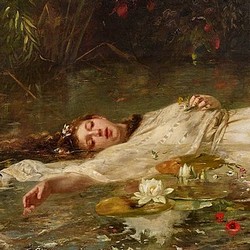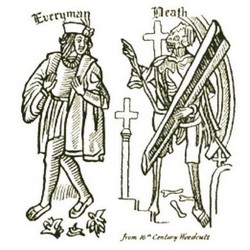- Details

I have my baggage at the doorstep, but I can't go on holiday without writing a few lines to remember Fritz Wunderlich, this week marks 53 years since his death; there are traditions I like to maintain. I've chosen one of Haydn's Scottish songs that the tenor made a record, my favourite: William and Margaret, Hob. XXVI: 153. Or, in the German version that we're listening, Es weiden meine Schafe.
- Details

The rustling of leaves in the wind, the babble of the brook, the crackling of a branch... the forest murmurs are unsettling when we're on alert, but they seem part of an intimate conversation between the forest and us when our mind is at peace and we feel in harmony with our environment; The feeling roughly describes roughly what in German is known as Waldeinsamkeit. Today we're listening to Geheimes Flüstern hier und dort, a Lied by Clara Schumann that tells about this feeling of communion with nature.
- Details

My dearest, September begins. Welcome back if you went on holiday last weeks, be patient if you (still) didn't go, you are not alone. The last notes from the Schubertíada remain in my mind, I enjoyed so much! After the last concert, my friends A. and J. told me: "You should explain in your blog that we had a terrific time at the Schubertíada!" They're right, we had a great time; we let ourselves be dragged into the darkest Lieder, we were happy Stendhal Syndrome victims and our dopamine release was really high. You should try it if you never went to Vilabertran.
- Details

This is the last post about the Schubertíada Vilabertran; For different reasons, I'm really looking forward to the three last song recitals so get ready, we have a lot of music to listen.
- Details

The third post about the Schubertíada Vilabertran will be focused on a single recital, that of Matthias Goerne and Alexander Schmalcz on Saturday, August 24. The reason is very simple: we only listened to two of the programmed songs, two songs by Mahler. And since long time ago, I jotted down in my notebook one of the song cycles that Goerne is singing, Sechs Monologe aus "Jedermann", I thought this could be a good opportunity to talk briefly about it.












